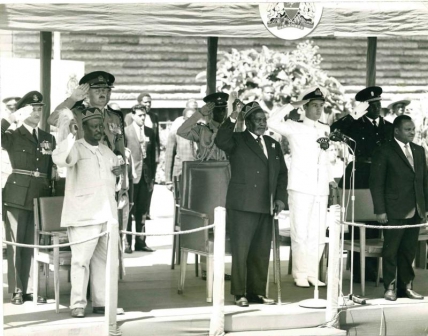
The biggest news in Kenya‘s New Year agenda is the August 8, 2017 General Election. It is a political watershed moment that will bring the curtains down on a 50-year political rivalry involving sons of Kenya‘s independence-era politicians.
It will be the final time that Uhuru Kenyatta, the current President and son of Kenya‘s founding President, Jomo Kenyatta, will face off with his formidable rival Raila Odinga or a protégé of the former Prime Minister in the opposition super alliance currently under delicate gestation. Raila is the son of Kenya‘s first Vice President and doyen of opposition politics Jaramogi Oginga Odinga.